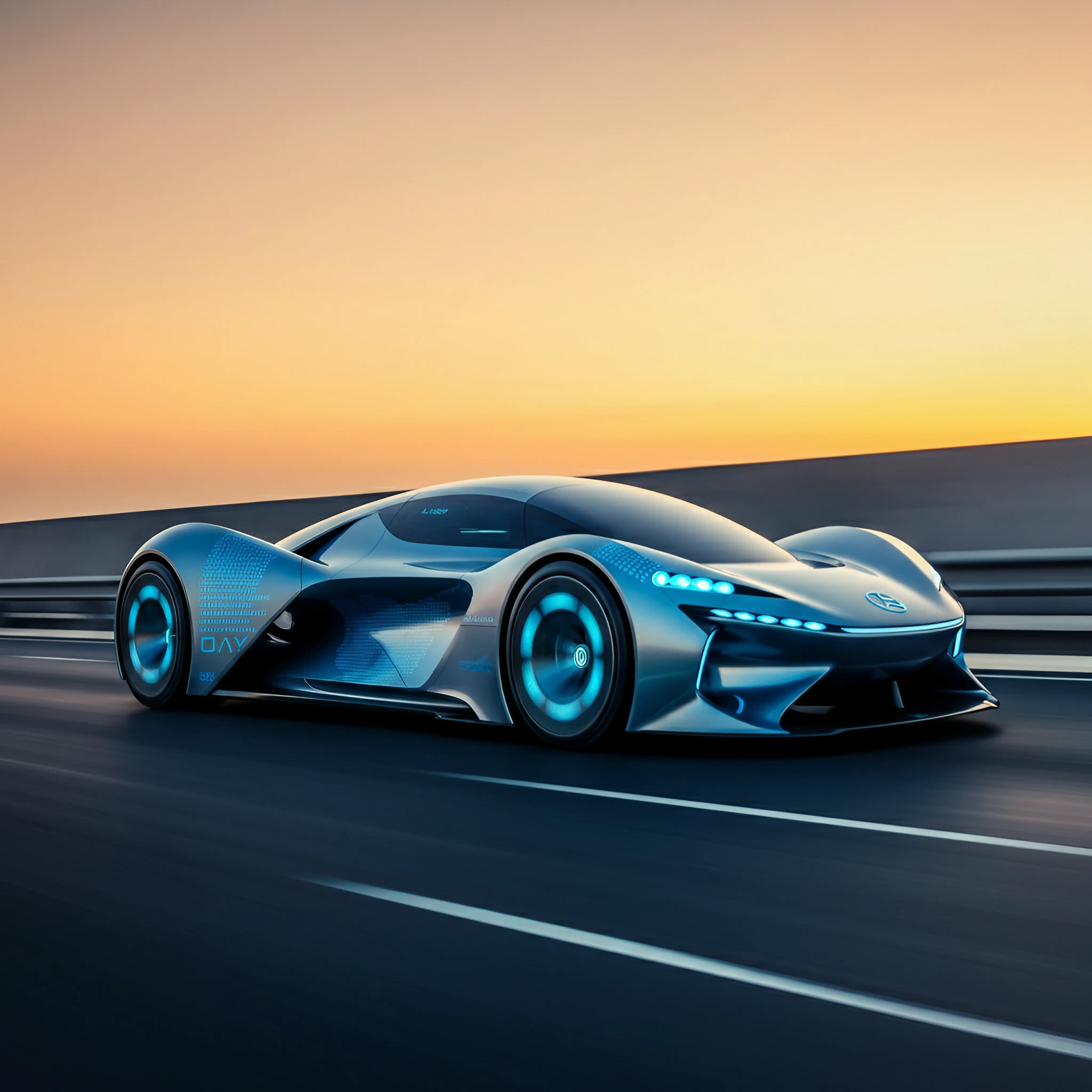Hydrogen cars, or fuel cell vehicles, are one of the most discussed innovations in alternative fuel technology. Hailed as a potential solution to climate change and urban air pollution, these cars use cutting-edge technology to deliver an exciting alternative to traditional internal combustion engines (ICE). This article will explore the benefits, workings, challenges, and future prospects of hydrogen cars, offering a closer look at their place in the market alongside other zero-emission cars.
How Do Hydrogen Cars Work?
At the heart of hydrogen cars lies a technology called the hydrogen fuel cell. A fuel cell generates electricity by combining hydrogen gas with oxygen from the air. This process produces electricity to run the car’s electric motor, and its only by-products are water vapor and heat. This makes hydrogen-powered cars completely clean at the tailpipe, distinguishing them from traditional gas or diesel-powered vehicles.
Unlike battery electric vehicles (BEVs), which rely on stored electricity in large onboard batteries, fuel cell vehicles (FCVs) produce energy on demand. Hydrogen is stored in compressed gas tanks within the car, offering a refueling process similar to petroleum vehicles.
Benefits of Hydrogen Cars
- Zero Tailpipe Emissions
Hydrogen cars release no pollutants while driving, making them a great option for eco-conscious drivers. Their only emission is water vapor, contributing significantly to urban air quality compared to ICE vehicles.
- Fast Refueling
One of hydrogen cars’ main advantages over electric cars is their refueling time. Refueling a hydrogen car takes just 3-5 minutes, making it nearly as convenient as filling up a gas tank.
- Extended Driving Range
Many hydrogen cars can travel about 300-400 miles on a single fill-up, rivaling the driving range of most gasoline models and outperforming many electric cars.
- Future-Proof Technology
Hydrogen is the most abundant element in the universe, making it a promising long-term sustainable energy source. This makes hydrogen cars future-ready and adaptable as technology evolves.
Challenges Facing Hydrogen Cars
- Infrastructure Limitations
One of the major roadblocks for hydrogen cars is the scarcity of refueling stations. Unlike the growing network of EV chargers, hydrogen infrastructure is still in its infancy, with limited availability in most regions.
- High Production Costs
While fuel cells have become more affordable over the years, they remain costly compared to battery technology. Hydrogen cars, like the Toyota Mirai, often come with a significant price tag, discouraging widespread adoption.
- Hydrogen Production Challenges
Much of today’s hydrogen production relies on fossil fuels, which diminishes its environmental benefits. Green hydrogen, produced through sustainable methods like electrolysis powered by renewable energy sources, is still more expensive to produce.
- Competition with Electric Vehicles
Despite its benefits, hydrogen technology faces tough competition from battery electric vehicles, which dominate the alternative fuel market due to their established infrastructure, efficiency, and lower costs.
Interestingly, even major players like Toyota, known for pushing hydrogen forward, have started shifting their focus to heavy-duty vehicles and industrial applications where hydrogen advantages are more pronounced (Source: Engadget). This pivot underscores the challenges of making hydrogen cars competitive in the passenger vehicle market.
Hydrogen Cars vs. Electric Cars
When comparing hydrogen cars with electric vehicles (EVs), several key differences arise:
- Energy Efficiency: EVs are generally more energy-efficient, as electricity is directly stored and transmitted to the motor. The hydrogen production and transportation process involves more energy losses.
- Charging/Refueling: Hydrogen cars have an edge in refueling time, taking just minutes compared to the hours it may take to charge an EV battery fully.
- Infrastructure: EV chargers are far more widely available than hydrogen refueling stations, making EVs more practical for the average consumer.
- Application: Hydrogen often excels in specific use cases, such as buses, trucks, and other heavy-duty vehicles, where battery weight and range limitations are challenges.
The Future of Hydrogen Cars
The outlook for hydrogen cars is tied to advancements in technology and infrastructure. Key developments include:
- Green Hydrogen Production
The growth of green hydrogen production will significantly reduce the environmental impact of hydrogen cars. Investments in renewable energy and electrolysis technology are key to scaling this.
- Expansion of Infrastructure
Governments and private sector partnerships are crucial for building more hydrogen refueling stations. Regions with existing investments, like California, South Korea, and Germany, are paving the way forward.
- Integration in Heavy-Duty Vehicles
With companies like Toyota pivoting their hydrogen focus toward industrial applications (Source: Engadget), hydrogen fuel cells could power buses, trucks, construction equipment, and even ships in the future.
- Government Support
Incentives and policies promoting hydrogen vehicle adoption will be vital. For example, some governments offer subsidies for hydrogen cars and infrastructure development, encouraging industry growth.
Is Hydrogen the Future?
Hydrogen cars hold incredible potential as part of a larger ecosystem of alternative fuel technology. While challenges such as infrastructure and production costs remain, hydrogen vehicles are an exciting addition to the green transportation movement. They excel in certain niches, such as heavy-duty and long-range applications, and could work alongside electric cars to diversify sustainable mobility solutions.
For car enthusiasts and eco-conscious drivers, hydrogen cars represent an exciting vision for the future of transportation. However, widespread adoption will rely on overcoming practical challenges while balancing innovation with affordability.
Want to experience zero-emission mobility? Keep an eye on this space as developments in hydrogen car technology continue to evolve.








